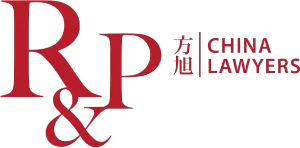What foreign companies need to know before heading to court
Filing a lawsuit in China can help enforce contracts and recover losses—but it's not as familiar or predictable as litigation in Western jurisdictions. From procedural quirks to cultural norms, navigating the Chinese court system takes preparation, patience, and local know-how.
If you're considering legal action in China, here are eight things you need to know:
1. Document Authentication is Required
Chinese courts typically require foreign documents—contracts, licenses, powers of attorney, company certificates—to be notarized, legalized, and translated into Chinese before they're accepted.
With China's accession to The Hague Convention, an apostille is now accepted for document authentication (after notarization). But the process still takes time and needs to be planned well in advance.
Tip: Start document authentication early. If your case depends on foreign documents, delays here can hold everything up.
2. Long Wait Times—but Short Deadlines
It's not uncommon to wait months before a case is accepted or scheduled. However, once proceedings begin, courts often issue short-notice deadlines—sometimes just a few days to prepare or submit evidence.
Tip: Work with local counsel who can monitor the case closely and act quickly when timelines tighten.
3. Most Communication Isn't by Email
Chinese courts usually communicate by phone or WeChat—not by formal email or courier. This informal style can frustrate foreign clients, especially when they need detailed records for internal reporting or to justify ongoing legal fees.
Tip: Your legal counsel must be responsive on these channels. Missing a WeChat message might mean missing a hearing.
4. Judges Play a Proactive—and Sometimes Opaque—Role
Unlike the adversarial approach in the U.S. or U.K., Chinese judges take an inquisitorial role. They may guide proceedings, push for settlement, and sometimes communicate with one party without informing the other.
Their priority is often docket management—resolving cases quickly—rather than ensuring each side gets its "day in court" as Western parties might expect.
Tip: Don't misinterpret judicial intervention as bias. Be flexible, and trust your local counsel to navigate the judge's approach.
5. Mediation is Strongly Encouraged
Mediation is not just common—it's expected. Courts often delay proceedings to give mediation a chance, and judges like to see that the parties made a good-faith effort to settle before filing.
Even pre-litigation demand letters can help demonstrate to the court that you've tried.
Tip: Be open to mediation where appropriate. If you're unwilling, be prepared to explain why.
6. Local Protectionism Still Exists
Despite national reforms, local courts—especially in smaller cities—may still favor local defendants, particularly if they are large employers or taxpayers. This can affect procedural fairness, like allowing late submissions or bending deadlines.
Tip: Jurisdiction matters. If you can, choose a major city like Shanghai or Beijing, or negotiate a favorable jurisdiction clause in your contracts.
7. Evidence Standards Are Different
Chinese courts rely heavily on written evidence. Witness testimony carries limited weight, and the authenticity of documents is often challenged.
In one case, a defendant's insurance report was rejected, and the court suggested re-assessment—by a court in Italy, at the claimant's expense.
Tip: Organize your documentary evidence carefully. Translations must be certified, and originals are often required.
8. Enforcement is a Separate Challenge
Winning a case doesn't guarantee payment. Some defendants delay, hide assets, or simply disappear. Enforcement of foreign judgments is difficult unless a treaty applies.
In one case, even with a favorable judgment, we already knew enforcement would be problematic—the defendant had no visible assets. Enforcement tools exist, such as court-ordered asset freezes, but they're complex and require a financial guarantee.
Tip: If enforcement is a concern, explore pre-litigation asset preservation options early on.
Final Thoughts
Litigating in China isn't impossible—but it's different. Legal merit alone isn't enough; success depends on managing expectations, acting quickly, and working with advisors who know the system.
A strong legal partner can guide you through the nuances, reduce surprises, and increase your chances of a favorable—and enforceable—outcome.
The content of this article is intended to provide a general guide to the subject matter. Specialist advice should be sought about your specific circumstances.


